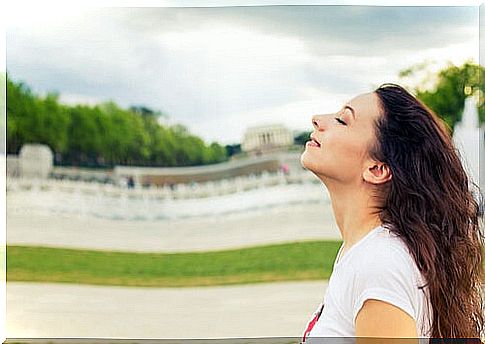The Value Of Being Faithful

The value of being faithful is enormous. To show you that this statement is correct and can bring great benefits to your way of thinking and understanding your world, I would like to take a little tour through the precepts of humanistic psychology.
You may well have heard of humanistic psychology. This movement has been and is a valid alternative to Freudian behaviorism and psychoanalysis, for which it has had a great impact thanks to its different approaches.
What is humanistic psychology
Humanistic psychology is a psychological school that postulates that altered states of consciousness are an exceptional means to achieve full human potential, giving special relevance to non-verbal experience.

Humanistic psychology is a modern trend that was born in the United States as part of the revolutionary cultural movements in the 1960s that has finally established itself as a valid psychological approach for different social and artistic fields.
To validate the approaches of humanistic psychology, its defenders rely on the theories of Jean-Jacques Rousseau, the famous French philosopher who describes humans as noble savages developed in a productive, kind, happy and good sense, as long as they Unfavorable experiences or society itself do not corrupt its nature.
Being faithful according to humanistic psychology
To know the importance of being faithful, attending to the precepts of humanistic psychology, I would like to explain how this current considers human beings and why it is essential when it comes to understanding our way of acting:
- The human being must be global. In it, feelings, behaviors, actions and thoughts converge in a whole.
- Human behavior is intentional seen from a personal perspective, in which freedom and dignity participate in a relevant way.
- The personal existence of each being must pass through an interpersonal context in which each subject develops, always attending to their individuality in social relationships with other equals.
- The human being is an autonomous person. Each individual has the capacity to make their own decisions that direct their development in the direction they choose.
- A person who is autonomous has the ability to assume their own responsibilities within social and interpersonal relationships.
- The inherent and natural tendency of the human being is self-realization. Thanks to it, personal growth and individuality occurs.
- All inner experience of the human being is personal and has meaning within itself. These experiences are fundamental axes to develop a network of perceptions that each one has about himself.

Approaches to humanistic psychology
Let us know below various approaches that we find in the theories of humanistic psychology. You will see all of them l to vital importance of faithful Peninsulas ourselves to have a life of great value:
- Existentialism: it is one of the classic approaches to humanistic psychology. Existentialism are sorrientes of thought that postulate that the main question of the human being is the own existence and not the essence. For existentialists, time translates into the possibility of life and the future becomes the possibility of living that time with freedom. They affirm that our anguish is meaningless, since human beings can take advantage of their existence with many more expressions that distress them.
- Transpersonalism: defended by Maslow, the humanist current accepts a transpersonal approach in which the fundamental concept is based on the psychic satisfaction of the human being. A satisfaction that revolves around a scale of needs to which we must prioritize based on their relevance to our psychic life.
- The humanistic psychology of C. Rogers, and the humanistic psychotherapy of Rogers that are based on two fundamental points:
- 1.- Total trust in the person-client: it is about transmitting empathy for the patient and understanding the experience of the patient and his world in order to understand him.
- 2.- Total rejection of the directive role of the therapist.
- Logotherapy: Viktor Frankl bases his humanistic approach on the search for the meaning of life. A sense that would function as the guarantor of our mental health in challenging situations, that would be that rope that ties us to life and that will prevent us from falling into complicated situations. It is precisely the fidelity that we keep to this idea that protects us.
- Transactional analysis: another approach defended by Berne postulates humanistic psychology as the restoration and protection of trust and existential potential in the person.
- Bioenergetic approach: Lowen defends the study of the character of each person in order to avoid neurosis and repression due to not being able to express and expel biological energy freely.
It is obvious that humanistic psychology largely focuses its focus on the importance of being faithful, because only by being oneself can the individual develop their enormous potential and their psychic capacities.









